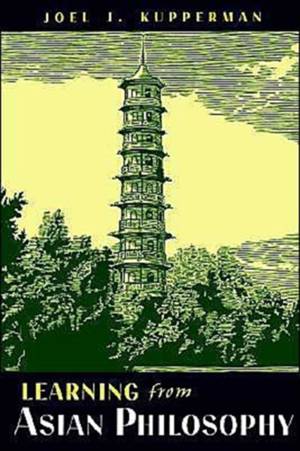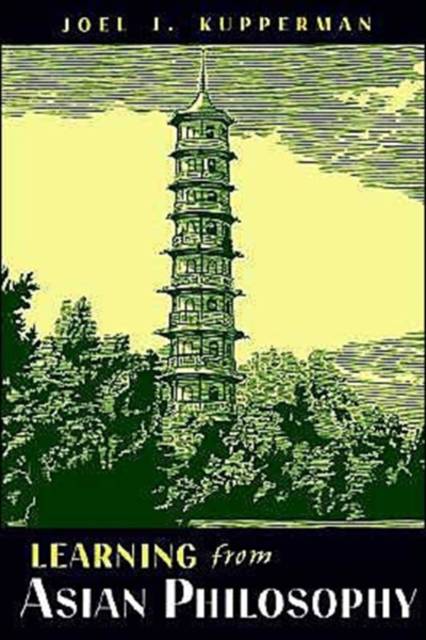
Door een staking bij bpost kan je online bestelling op dit moment iets langer onderweg zijn dan voorzien. Dringend iets nodig? Onze winkels ontvangen jou met open armen!
- Afhalen na 1 uur in een winkel met voorraad
- Gratis thuislevering in België vanaf € 30
- Ruim aanbod met 7 miljoen producten
Door een staking bij bpost kan je online bestelling op dit moment iets langer onderweg zijn dan voorzien. Dringend iets nodig? Onze winkels ontvangen jou met open armen!
- Afhalen na 1 uur in een winkel met voorraad
- Gratis thuislevering in België vanaf € 30
- Ruim aanbod met 7 miljoen producten
Zoeken
Omschrijving
In an attempt to bridge the vast divide between classical Asian thought and contemporary Western philosophy, Joel J. Kupperman finds that the two traditions do not, by and large, supply different answers to the same questions. Rather, each tradition is searching for answers to their own set of questions--mapping out distinct philosophical investigations. In this groundbreaking book, Kupperman argues that the foundational Indian and Chinese texts include lines of thought that can enrich current philosophical practice, and in some cases provide uniquely sophisticated insights. Special attention is given to the ethical issues of formation and fluidity of self, the nature and possibilities of choice, the compartmentalization of life implicit in some ethical systems, the variations of ethical demands from person to person, and the nature of philosophy itself as a communicative activity. This study will provide a wealth of information for philosophers seeking a closer knowledge of Asian philosophy and general readers with an interest in Eastern thought.
Specificaties
Betrokkenen
- Auteur(s):
- Uitgeverij:
Inhoud
- Aantal bladzijden:
- 224
- Taal:
- Engels
Eigenschappen
- Productcode (EAN):
- 9780195128321
- Verschijningsdatum:
- 4/11/1999
- Uitvoering:
- Paperback
- Formaat:
- Trade paperback (VS)
- Afmetingen:
- 157 mm x 234 mm
- Gewicht:
- 317 g

Alleen bij Standaard Boekhandel
+ 332 punten op je klantenkaart van Standaard Boekhandel
Beoordelingen
We publiceren alleen reviews die voldoen aan de voorwaarden voor reviews. Bekijk onze voorwaarden voor reviews.











